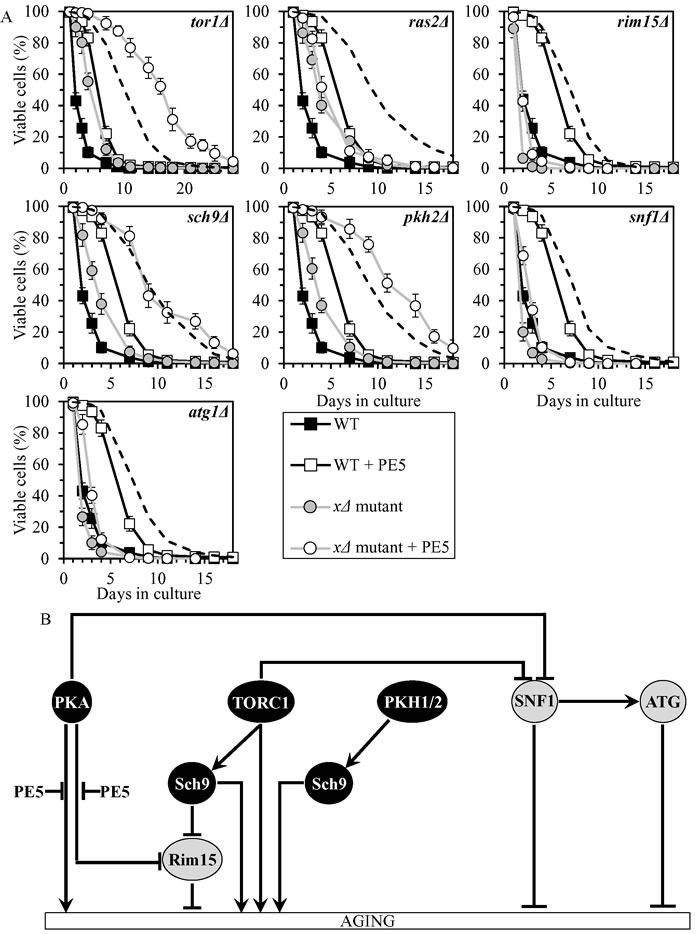Figure 4. PE5 extends yeast CLS by weakening two branches of the PKA signaling pathway.

A. Cells of the wild-type (WT) and indicated mutant strains were grown in the synthetic minimal YNB medium (0.67% Yeast Nitrogen Base without amino acids) initially containing 2% glucose, in the presence of 0.5% PE5 (ethanol was used as a vehicle at the final concentration of 2.5%) or in its absence (cells were subjected to ethanol-mock treatment). Survival curves of chronologically aging WT and mutant strains cultured with or without 0.5% PE5 are shown. Data are presented as means ± SEM (n = 7). The dotted line indicates the predicted survival curve of a particular mutant strain cultured with PE5 if this PE exhibits an additive longevity-extending effect with the mutation. Data for the mock-treated WT strain are replicated in all graphs of this Figure and in all graphs of Figure 3. Data for each of the mock-treated mutant strains presented in this Figure are replicated in the corresponding graphs of Figure 3. Data for the WT strain cultured with PE5 are replicated in all graphs of this Figure. B. The effect of PE5 on the signaling pathways and protein kinases comprising the longevity-defining network. This effect is inferred from the data presented in A., Tables 2 and 3, and Suppl. Figs. S2 and S8. Abbreviations: as in the legend to Figure 1.
